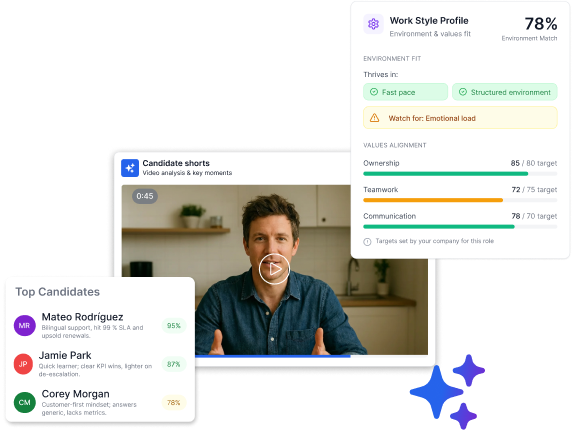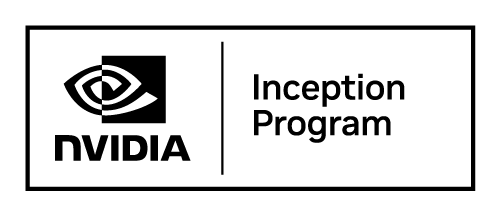If you're running hiring at a fast food chain or managing dozens of open frontline roles across multiple locations, you’ve probably heard of Paradox AI. Maybe you're even eyeing it for your own team. But between the unicorn status, enterprise logos, and glowing LinkedIn testimonials, it's hard to get a straight answer to the basic question: is it worth it for us?
This guide breaks down what Paradox AI actually does, where it shines (and where it doesn’t), and how to decide if it fits your hiring needs, especially if you're in restaurant, retail, or hospitality recruitment.
What is Paradox AI?
Paradox is an AI hiring platform built around a conversational chatbot named Olivia. Olivia isn’t just a virtual assistant. She's designed to text with candidates, qualify them based on knockout questions, schedule interviews, and answer basic questions without needing a recruiter to step in.
Think of it as an AI-powered triage nurse for your job applications. Olivia screens, sorts, and moves candidates forward in real time.
Core products include:
- Conversational Apply: Text-based job applications
- Conversational Scheduling: Automated interview booking
- Conversational ATS: A mobile-first applicant tracking system
- Conversational Events: Hiring event management
- Traitify Assessments: Quick personality quizzes for screening
All of this plugs into your existing ATS or HCM (such as Workday, SAP, or SuccessFactors) and your job boards like Indeed.
What is Paradox best at?
High-volume, hourly hiring.
This is Paradox’s bread and butter. If you're hiring at scale—hundreds or thousands of frontline roles across many locations—it shines. Olivia handles the repetitive, logistical parts of recruiting with 24/7 speed. A few examples:
- Chipotle cut time-to-hire from 12 days to 4 days
- GM reduced interview scheduling time from 5 days to 29 minutes and saved $2 million annually in recruiter time
- Johnson Controls lifted hire rates by 14 percent with AI-powered SMS follow-ups
These results come from automating screening and scheduling, which are often the most time-consuming parts of frontline recruiting.
What does Paradox cost?
Paradox does not make its pricing public, but recruiter discussions and user reports suggest the following:
Estimated cost:
- Starts around $1,500 to $2,500 per month
- Annual contracts often range from $30,000 to $100,000+
- Pricing is tiered based on number of hires, locations, features, and integrations
Cost factors include:
- Volume of hiring
- Number of locations
- Whether you use just scheduling or the full Olivia suite
- Integration with your ATS or HRIS
- Training and implementation support
If you're hiring fewer than 100 people a year, the cost may outweigh the benefits. But if you're operating dozens of stores or franchises with frequent turnover, the ROI can add up.
Paradox AI's candidate experience hasmixed reviews
Paradox is efficient. But is it human?
On Reddit and elsewhere, feedback from job seekers is split. Some find the chatbot experience smooth and easy to navigate. Others describe it as repetitive or impersonal, with frustrations around being passed through an automated funnel only to find no real person behind it.
This highlights a core truth. Recruiting automation software works well only when your process is well structured. If job postings are outdated or your hiring managers are not aligned, Olivia will still move candidates forward. But the handoff might fall apart.
Where Paradox fits in your hiring stack
Paradox doesn’t replace your ATS. It layers on top of it. Most teams use Olivia for top-of-funnel work such as screening, answering FAQs, scheduling, and texting candidates. Then it syncs all that data back into your system of record.
Key integrations include:
- Workday
- SAP SuccessFactors
- Greenhouse
- iCIMS
- Indeed
- Twilio
This interoperability is essential if you want Olivia to feel like a part of your existing workflow instead of another disconnected tool.
Pros and cons of Paradox AI
Here are the most commonly cited pros and cons of using Paradox AI.
Pros:
- Purpose-built as high-volume recruiting software, frontline roles
- Removes hours of manual screening and scheduling
- Proven results in enterprise rollouts
- Strong support for multilingual and global hiring
Cons:
- Can feel robotic or frustrating if workflows are not mapped well
- Not designed for nuanced, hard-to-fill roles
- Onboarding and setup require real effort
- Cost may be prohibitive for smaller businesses
Paradox AI alternatives worth considering
If you're comparison shopping, here are a few other tools in the same space:
- Fountain is workflow automation for hourly hiring
- HireVue is video interviews and structured assessments
- Truffle is video interview software with AI summaries and match scoring, built for small teams
(That last one is us. If you're hiring at one or a few locations and want a simpler solution, Truffle might be a better fit.)
Is Paradox right for you?
If you are hiring hundreds of hourly employees across dozens of locations and struggling to keep up, Paradox is a strong contender. It can save your team time, reduce ghosting, and dramatically speed up your time to hire.
But if you're a single-location fast food franchise making 5 to 10 hires a month, the price tag and complexity might not pay off. Smaller tools with faster setup and more human interaction may get the job done just as well.
What to do before you book the demo
Ask yourself:
- How many hires are we making per month?
- How much time are we spending on screening and scheduling?
- Do we want to reduce friction for candidates or just speed up internal workflows?
- Can we afford a multi-thousand dollar tool that requires implementation?
The answers to those questions will tell you whether Paradox is a good match or if you should look at something simpler.
Want a second opinion? We’re happy to show you how Truffle compares and where it might be a better fit.



